- News
- Reviews
- Bikes
- Accessories
- Accessories - misc
- Computer mounts
- Bags
- Bar ends
- Bike bags & cases
- Bottle cages
- Bottles
- Cameras
- Car racks
- Child seats
- Computers
- Glasses
- GPS units
- Helmets
- Lights - front
- Lights - rear
- Lights - sets
- Locks
- Mirrors
- Mudguards
- Racks
- Pumps & CO2 inflators
- Puncture kits
- Reflectives
- Smart watches
- Stands and racks
- Trailers
- Clothing
- Components
- Bar tape & grips
- Bottom brackets
- Brake & gear cables
- Brake & STI levers
- Brake pads & spares
- Brakes
- Cassettes & freewheels
- Chains
- Chainsets & chainrings
- Derailleurs - front
- Derailleurs - rear
- Forks
- Gear levers & shifters
- Groupsets
- Handlebars & extensions
- Headsets
- Hubs
- Inner tubes
- Pedals
- Quick releases & skewers
- Saddles
- Seatposts
- Stems
- Wheels
- Tyres
- Health, fitness and nutrition
- Tools and workshop
- Miscellaneous
- Cross country mountain bikes
- Tubeless valves
- Buyers Guides
- Features
- Forum
- Recommends
- Podcast
review
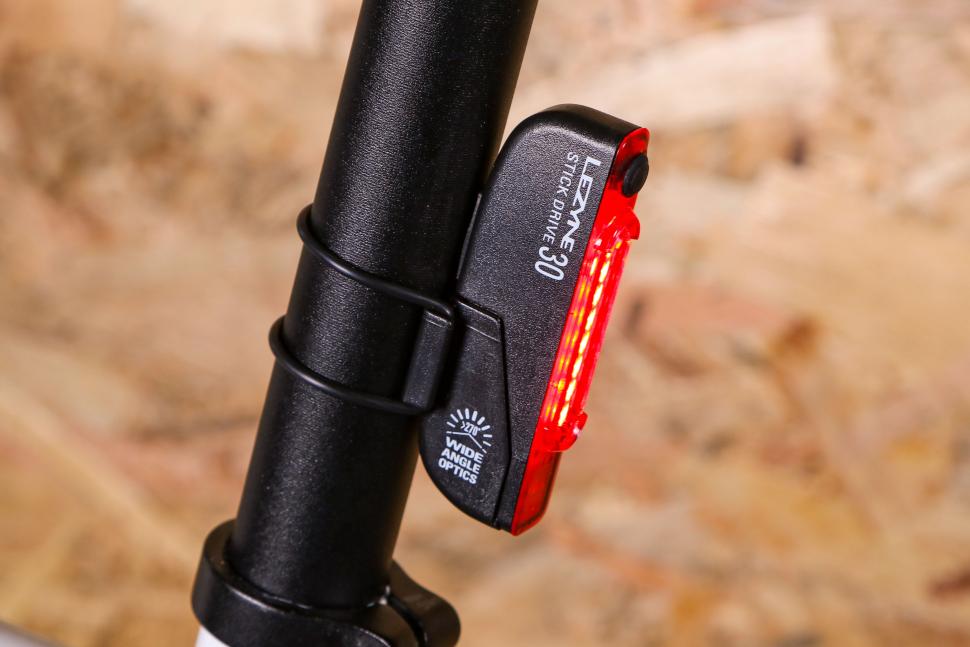 2020 Lezyne Stick Drive
2020 Lezyne Stick Drive£30.00
VERDICT:
Capable rear light for general riding, if not endurance rides along the very darkest lanes
Lower, more frugal settings are more captivating than numbers suggest
Not the longest run-times in higher constant settings
Weight:
22g
Contact:
At road.cc every product is thoroughly tested for as long as it takes to get a proper insight into how well it works. Our reviewers are experienced cyclists that we trust to be objective. While we strive to ensure that opinions expressed are backed up by facts, reviews are by their nature an informed opinion, not a definitive verdict. We don't intentionally try to break anything (except locks) but we do try to look for weak points in any design. The overall score is not just an average of the other scores: it reflects both a product's function and value – with value determined by how a product compares with items of similar spec, quality, and price.
What the road.cc scores meanGood scores are more common than bad, because fortunately good products are more common than bad.
- Exceptional
- Excellent
- Very Good
- Good
- Quite good
- Average
- Not so good
- Poor
- Bad
- Appalling
The Lezyne Stick Drive rear light is a seven-function model pumping out a maximum of 30 lumens. On paper, some of the settings seem decidedly underwhelming, but the blend of optical technology and strobing patterns means they're surprisingly usable. And don't be fooled by the slimline profile – though it has a sleek aesthetic, the Stick Drive's Wide Angle Optics lens is designed to project light at 270 degrees and it works well, providing decent peripheral presence.
Behind the lens there are eight diodes, all fuelled by a rechargeable lithium polymer cell. The body and lens are described as 'composite matrix', and though Lezyne is a little vague on the waterproofing front – it's 'built to be highly water resistant' – I've been through some very heavy, continuous rain with no issues. It meets FL1 standards: essentially, it should resist a drop of 1 metre without incurring damage.
> Find your nearest dealer here
The switch is a small, firm, rubberised 'pimple' at the top of the unit. Engagement is positive, preventing unwanted power-ups in a pocket or luggage, and easy enough to use wearing thick winter gloves.
Seven modes isn't unusual these days, and the Stick Drive has a memory function so you can just click straight back to your last or default setting.
Performance
I'll start with the 30-lumen daylight mode. Okay, it's not as retina-tickling as some, but it has certainly grabbed attention through more overcast autumn afternoons, something I attribute to a combination of diode tempo and optics. I seemed to register on approaching traffic's radar from 150 metres or so along rural roads, maybe 100 through suburban stretches where there are more distractions. Despite the shallow lens, there's decent peripheral presence for when you're turning right or negotiating roundabouts.
> Embrace the darkness: 6 tips for cycling at night
The Blast setting caught me by surprise, being much brighter than 30 lumens might suggest. I've been spotted at 250 metres on some very dark, murky nights in the back of beyond. For the most part, that's where it belongs: it's far too bright at close quarters, whether that be on a socially distanced group ride or through suburban settings at rush hour.
I'd be inclined to go for the economical 12-lumen Flash 3 for most contexts – it's distinctive enough around town and even along the lanes, although I'd probably pair it with a second one for longer haul/regular back road riding.
Sequencing aside, I was genuinely surprised by how potent the lower settings were: 4 lumens sounds very much like glimmer territory these days, but the combination of optics and diodes meant it felt comparable to others in their 10-lumen settings – and it's certainly adequate for town, where we're talking visible from 50 metres, maybe 65 outside of the city. You'll be seen, and it shouldn't grate on riders following your line.
Run-times and charging
Run-times were very faithful to the cited figures across the board, though they're not overly generous in the higher constant settings, Blast and 12-lumen Enduro. Neither falls short of the times Lezyne claims, and they're fine for training runs/middle distancing commuting (if you keep on top of charging), but the 1hr 30mins and 3hrs 30mins respectively might prove limiting for some.
> Buyer’s Guide: 18 of the best rear lights for cycling
Though not essential, an auto kick down to the most frugal mode would be welcome – ideally, we'd all be religious with our charging but in reality life can get in the way sometimes. If you are prone to this, for general/solitary riding I'd be inclined to plump for that 12-lumen Flash 3, which will chirp away for almost 23 hours.
Lezyne has gone for an integral USB charger, which is very neat and a boon if you're prone to losing charging cables. It's neatly hidden from the elements by a secure, magnetised panel-cum-mount. Plug in, and give it 2 hours at the mains (add another 20 minutes or so if you're refuelling from a laptop). The charge indicator will pulse red before going 'out' when the unit is fully juiced. Pressing the button will give a 'traffic light' status as to battery health, so you can staircase down, if necessary, to get home.
Mount
Lezyne has traditionally gone the 'ladder strap' route, which I'm actually rather fond of. This time, it's opted for rubber doughnuts – one for standard, the other oversized tubing. The smaller certainly affords decent purchase on seatposts between 25.4 and 27.2mm, right down to seatstays.
The other benefit to this simple system is that the bands are ubiquitous, so getting hold of a replacement shouldn't be a headache, in the event of loss/breakage.
Value
The £30 mark is a highly competitive battleground, but when everything is factored into account, the Lezyne represents decent value. It offers good build, and a sensible range of modes and features that will cater for most riding contexts.
It compares well with the Ravemen TR50, which weighs in at £34.95, but although that pumps out a maximum of 50 lumens – and could be a better choice if you are regularly tackling pitch black roads – peripheral punch doesn't rival the Lezyne's. The Ravemen's bike-mounted bracket is also fiddly, and the touch-pad selector an acquired taste.
Although cheaper at £27.99, the Blackburn Dayblazer R65 is a little heavier and doesn't have a memory function – though it does pack 65 lumens and boasts a lifetime warranty against manufacturing defects.
Those keen to get as many lumens for least money may find the Oxford Ultratorch Slimline R50 LED worth a look. It comes in at £17.99 and offers 50 lumens, but the materials feel inferior, ditto peripheral punch, compared with the Lezyne.
Conclusion
Although it's not the brightest light in the market, the Lezyne Stick Drive still offers decent presence and economy, for a pretty good price.
Verdict
Capable rear light for general riding, if not endurance rides along the very darkest lanes
road.cc test report
Make and model: Lezyne Stick Drive rear light
Size tested: 30 lumens
Tell us what the light is for, and who it's aimed at. What do the manufacturers say about it? How does that compare to your own feelings about it?
Lezyne says: "The Stick Drive is an incredibly thin and lightweight rear bike light equipped with eight super bright LED emitters. Its minimalistic design is optimized for versatility and ease of use. A simple o-ring securely straps it to a bicycle seatpost, and an innovative magnetic attachment separates the light from the mount for quick charging accessibility. It's equipped with an integrated USB stick for cable-free charging, providing up to an impressive 23 hours of runtime. The Wide Angle Optics lens creates up to 270° of visibility, and the light outputs up to 30 lumens - this includes a disruptive Daytime Flash feature among its seven modes. With its narrow design and compact mount, the Stick Drive is the perfect taillight for maintaining aerodynamics and also attaching to seatposts with minimal space - like a dropper post. Designed and produced in-house, the Stick Drive is engineered for long lasting durability and built to be highly water resistant.'
It's not the brightest light but offers plenty of presence and, mostly, decent run-times.
Tell us some more about the technical aspects of the light?
Lezyne lists:
* Disruptive Daytime Flash mode.
* Secure O-Ring strap.
* Max. 30 lumens.
* Narrow design.
* Compact mounting system.
* Seven Light Modes.
* Water resistant.
* Max. 23 hour runtime.
* 23g weight.
Rate the light for quality of construction:
7/10
Reassuringly solid.
Rate the light for design and ease of use. How simple was the light to use?
8/10
Very intuitive. Switch quite small but not overly troublesome to locate and command in full finger gloves. Memory function certainly helps.
Rate the light for the design and usability of the clamping system/s
7/10
I was a little skeptical of the magnetised panel but it seems very reliable. The o-ring strap is perfectly adequate and easily replaced if lost or broken.
Rate the light for waterproofing. How did it stand up to the elements?
7/10
No issues.
Rate the light for battery life. How long did it last? How long did it take to recharge?
7/10
2-hour charge times and run-times very faithful to those cited, though Blast and Enduro modes aren't the longest running.
Rate the light for performance:
7/10
Brighter than the numbers would suggest.
Rate the light for durability:
7/10
Composites feel solid enough but difficult to comment on longer term durability.
Rate the light for weight:
8/10
Very light but feels reassuringly solid.
Rate the light for value:
6/10
Tell us how the light performed overall when used for its designed purpose
Overall, and in keeping with other Lezyne lights in my collection, the Stick Drive seems much brighter and more usable than the numbers might imply. Blast and Enduro aside, run-times are very frugal and charging times equally practical. I've sometimes wondered whether the very lowest 4-lumen settings could be culled, but they could be a godsend should reserves dwindle.
Tell us what you particularly liked about the light
Sleek, lightweight design, sensible modes and run-times.
Tell us what you particularly disliked about the light
Nothing specific.
How does the price compare to that of similar products in the market, including ones recently tested on road.cc?
The Ravemen TR50 weighs in at £34.95 but lacks the Lezyne's peripheral punch; cheaper at £27.99, the Blackburn Dayblazer R65 gains lumens but also weight, and doesn't have a memory function; Oxford's Ultratorch Slimline R50 LED comes in at £17.99 but is inferior in terms of materials and peripheral punch.
Did you enjoy using the light? Yes
Would you consider buying the light? Yes
Would you recommend the light to a friend? For the most part, yes.
Use this box to explain your overall score
It's a capable rear light for general riding, though there are better options if the majority of your riding is along unlit country roads.
About the tester
Age: 47
I usually ride: Rough Stuff Tourer Based around 4130 Univega mtb Frameset My best bike is: 1955 Holdsworth Road Path and several others including cross & traditional road
I've been riding for: Over 20 years I ride: Most days I would class myself as: Experienced
I regularly do the following types of riding: cyclo cross, commuting, touring, fixed/singlespeed, mtb,
Shaun Audane is a freelance writer/product tester with over twenty-eight years riding experience, the last twelve (120,000 miles) spent putting bikes and kit through their paces for a variety of publications. Previous generations of his family worked at manufacturing's sharp end, thus Shaun can weld, has a sound understanding of frame building practice and a preference for steel or titanium framesets.
Citing Richard Ballantine and an Au pair as his earliest cycling influences, he is presently writing a cycling book with particular focus upon women, families and disabled audiences (Having been a registered care manager and coached children at Herne Hill Velodrome in earlier careers)
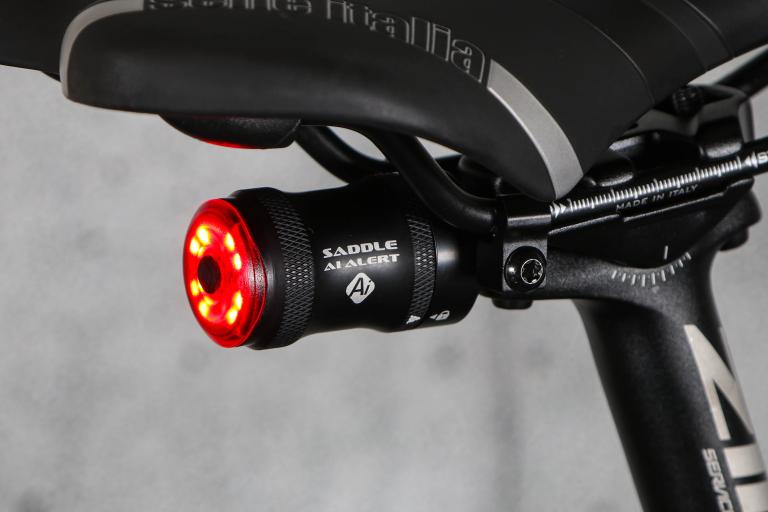
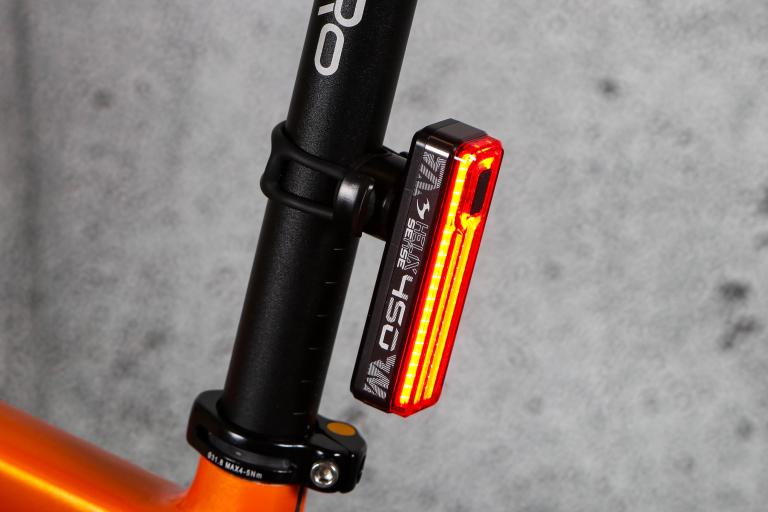
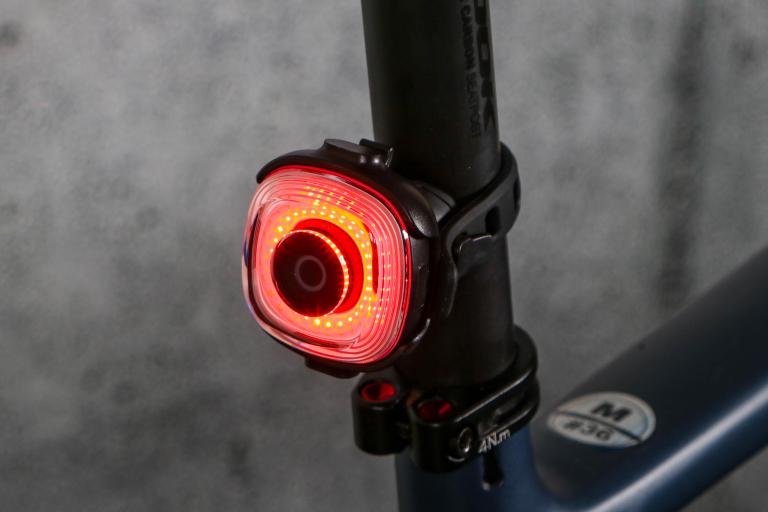
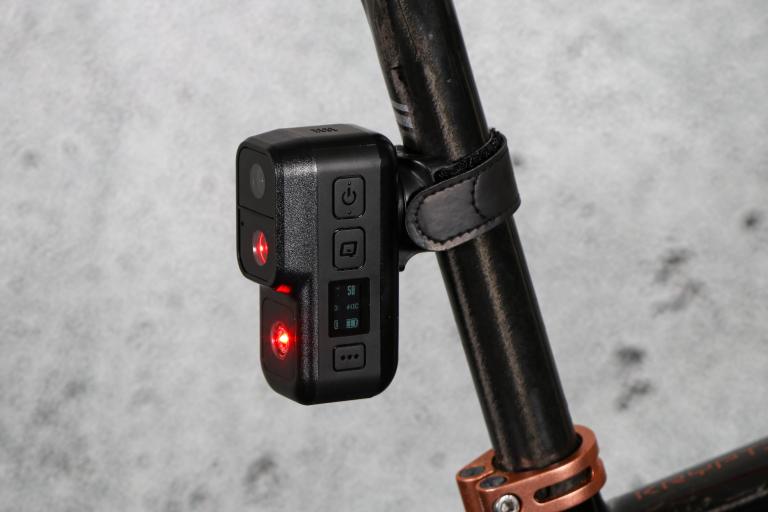
The difference is that the Labour Party has actually done something about it by booting him out. If he'd been a Tory, the twat would have been...
"Buggy hit by car blamed on traffic scheme"...
The Giro starts on the 9th May, so the new programme finishing on 5th June would mean that it covers the end of the Giro and then stops
I feel Google needs one of Henry Beard's books for more up-to-Silver-Age colloquial source material (or even better literal translation)...
I would say a 10 in front of the 6 would be a more appropriate sentence.
I'm disabled and a wind up workstand would be a godsend for even the most basic of maintenance tasks. These things are almost non-existent. I'd be...
A set of pedals can come in proper handy too sometimes.
Memory lane!...
Mercedes A-Class WU66 LLJ below went without MOT for 8 1/2 months from 19.10.23 to 2.7.24. I just happen to be doing some following up and evidence...
I think you've got your Yateses mixed up.